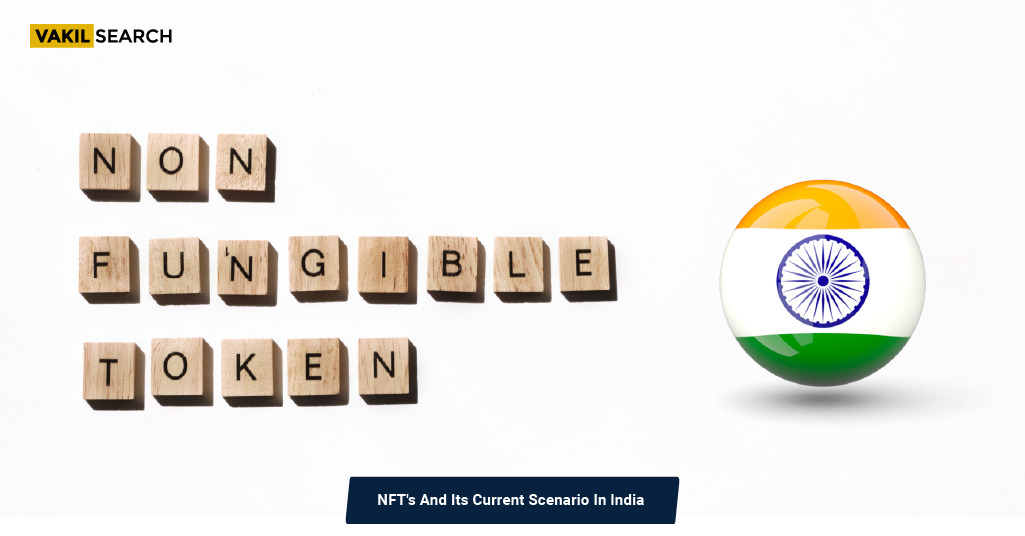In this article we will look into NFTs, its origins, the relationship between NFTs and smart contracts, its legal position in India, the legal implications surrounding NFTs, and the future of NFTs in the country.
Introduction
Non-Fungible Tokens (NFTs) have gained significant attention in recent years, revolutionizing the way digital assets are bought, sold, and owned. NFTs have made headlines globally, and India is no exception. As the NFT market continues to evolve, it is crucial to understand its origins, the relationship between NFTs and smart contracts, the legal position in India, the legal implications surrounding NFTs, and the future of NFTs in the country. Let’s see about NFTs and its current scenario in India in this blog.
1. Where Did NFT Start?
NFTs originated in 2014 with the launch of the Ethereum blockchain. However, they gained widespread popularity in 2017 with the release of CryptoKitties, a blockchain-based game that allowed users to collect, breed, and trade virtual cats. CryptoKitties utilized NFTs to establish unique ownership and provenance of digital assets, setting the stage for the NFT revolution we see today.
2. Relationship Between NFTs and Smart Contracts
NFTs are indivisible, unique tokens that are minted on blockchain networks, predominantly Ethereum. The relationship between NFTs and smart contracts is integral to their existence. Smart contracts are self-executing agreements with the terms of the contract written directly into the code. These contracts facilitate the creation, sale, and transfer of NFTs.
When an NFT is minted, a smart contract is deployed on the blockchain, which establishes the rules and conditions for the token. The smart contract governs the ownership, transferability, and any royalties associated with the NFT. Through the use of smart contracts, NFTs provide a transparent and immutable record of ownership, ensuring the authenticity and provenance of digital assets.
3. Legal Position in India
In India, the legal position regarding NFTs is still evolving. As of now, there are no specific laws or regulations that directly address NFTs. However, existing laws related to intellectual property rights, taxation, and securities regulations may be applicable to certain aspects of NFTs.
Regarding intellectual property rights, NFTs can represent various digital assets, including artworks, music, videos, and more. The ownership and sale of these assets may raise copyright issues, as artists or creators may retain certain rights even after selling an NFT. It is important for both creators and buyers to ensure they have appropriate licenses or permissions for the underlying content.
From a taxation perspective, the purchase and sale of NFTs may attract capital gains tax. The tax liability depends on factors such as the holding period, the value of the NFT at the time of sale, and the individual’s tax status. It is advisable for individuals involved in NFT transactions to consult with tax professionals to understand their tax obligations.
4. Legal Implications of NFTs
NFTs bring several legal implications that need careful consideration. Some key areas of concern include copyright infringement, fraud, and money laundering.
Copyright infringement can arise when NFTs are used to tokenize copyrighted works without proper authorization. Artists should be cautious when creating NFTs based on existing artworks, as it may infringe upon the original creator’s rights.
The decentralized and pseudonymous nature of blockchain technology poses challenges in terms of fraud prevention. It can be difficult to trace the true identity of NFT creators and sellers, which opens up the possibility of fraudulent activity. Buyers should conduct due diligence and verify the authenticity and ownership of the NFT before making a purchase.
Furthermore, NFTs can be used as a vehicle for money laundering due to their potential for anonymity and ease of cross-border transactions. Regulators may need to address these concerns and implement measures to mitigate the risks associated with NFTs.
5. The Future of NFTs in India
The future of NFTs in India looks promising, as the market continues to grow and evolve. With the increasing popularity of digital art, music, and collectibles, NFTs provide artists and creators with a new way to monetize their work and establish a direct connection with their audience.
In recent times, Indian artists and celebrities have shown interest in NFTs, with several notable figures launching their own collections. This has helped raise awareness and generate excitement around NFTs within the Indian creative community.
However, for NFTs to reach their full potential in India, there is a need for regulatory clarity and legal frameworks that address the unique aspects of NFTs. Clear guidelines regarding intellectual property rights, taxation, and investor protection would provide the necessary framework for the responsible growth of the NFT ecosystem.
Final Thoughts – NFTs And Its Current Scenario In India
NFTs have emerged as a disruptive force in the digital landscape, offering new opportunities for artists, creators, and collectors. While the legal position of NFTs in India is still developing, it is crucial for stakeholders to navigate the legal implications and ensure compliance with existing laws.
As the Indian market embraces NFTs, it is essential for regulators, artists, collectors, and investors to collaborate and establish a balanced regulatory framework that fosters innovation while addressing potential risks. With the right legal and regulatory environment, NFTs have the potential to transform various industries and empower creators in India for years to come. Hope this blog regarding NFTs And Its Current Scenario In India was helpful.
Read more,

